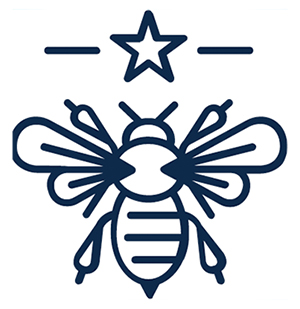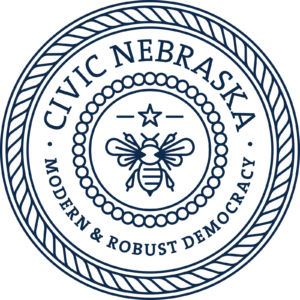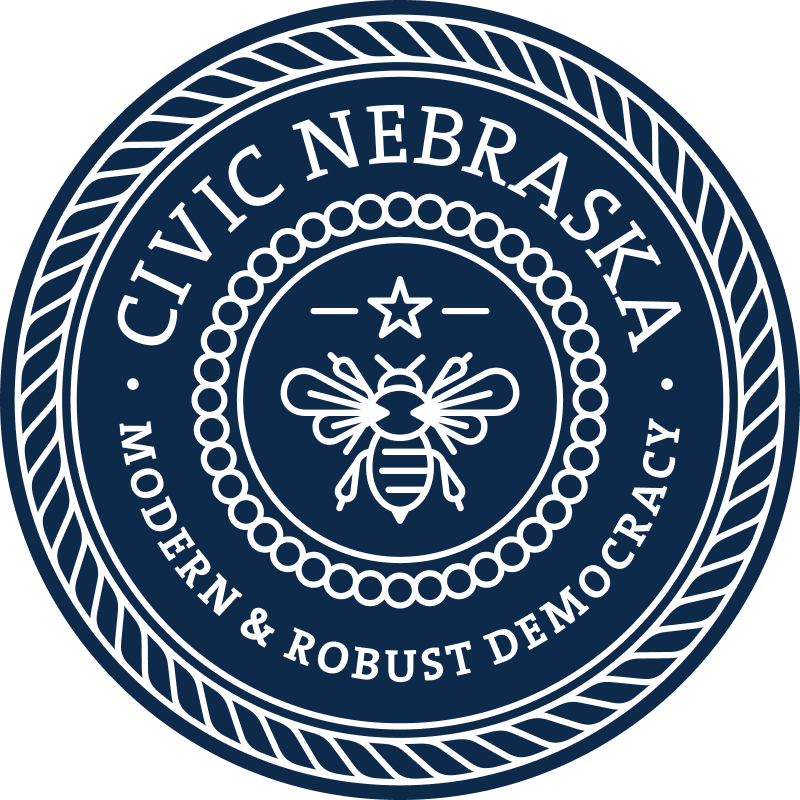Did you have a favorite teacher growing up? Of course, you did. In junior high, in my rural Nebraska school, mine was a local icon named Marianna Schilling. We called her Mrs. S. During my eighth-grade year, we had both of her subjects, English and social studies, back-to-back – so she often seamlessly went back and forth between them. Her average lesson might first focus on subject-predicate clauses, then, before you knew it, suddenly it would be knee-deep in a discussion about clauses of the U.S. Constitution. It was unorthodox, but it was effective. It kept you on your toes, anyway.
Once, in a lesson that started out about pronouns, Mrs. S. introduced us to one of her favorite three-word phrases: That devil, they.
That devil, they. She used it as a quip, to confront the almost reflexive way that we talk about others across our society. Usually, to blame or ridicule them.
Listen for it and you’ll hear it more often than you’d think. In Nebraska, it probably is most often brought up around the weather. As in: They said it was going to rain today, but we haven’t gotten a drop.
 But, constantly saying they was a cop-out, Mrs. S. would say: abandoning our responsibility to be engaged, informed, curious citizens. Who’s they?, she’d say.
But, constantly saying they was a cop-out, Mrs. S. would say: abandoning our responsibility to be engaged, informed, curious citizens. Who’s they?, she’d say.
The weatherman? No.
The government? No.
The people who run things?
Aha – and who’s that?, she’d say.
Eventually, she’d nudge us to the correct answer: In our democracy, we are.
We’ve all learned this at some point – that we make up our democracy. It’s a classic civics lesson: We’re the authority, the last word. Democracy is based on active citizenship and civic duty — and when citizens show up … lead by example … hold themselves and others accountable … and put trust in their fellow citizens, we all are better off.
Does it feel like that to you today? No? … Maybe? … Sometimes?
Well, let’s talk about that. First, let’s talk about that uniquely American definition of we, and where it came from.
Second, let’s ask ourselves – honestly – if that definition of we is still holding.
And finally, let’s reckon with our answer, and think about how we might redefine – and even reclaim – this idea of we.
First, let’s go back to the beginning to get a sense of where the idea came from.
The American “we” comes from the notion of unity – the physical state of we, the state of being joined as a whole. This is so very important in our national narrative. And, every country needs inspiring narratives about how they came to be … a self-definition that highlights its unique character, one that affirms and reinforces its national values. To find their myths, other countries often simply rely upon their shared ethnicity, culture, or language. The United States? Not so much. We lacked a single ethnicity, culture, or language. We came about because of an argument, in a Revolutionary summer, under the banner of a radical idea. Resolving, after months of debate, to unite against that remote, arrogant British Empire – that first devil, they.
So, the United States was born. It started with a coming-together, a mutual aid. Without that unified front, that physical state of we, in the summer of ‘76, we still might be carrying around money with monarchs on it.
Unity didn’t happen automatically. Before the Founders actually wrote out in the Declaration that they were “United,” they had to take one of the biggest leaps of faith in history: Trust in one another. This wasn’t a slam dunk – the Continental Congress was often so heated and divided, a few colonies threatened to walk away at times.
Eventually, the men in that hall came to realize that their very presence, together, in Philadelphia meant that they were already acting as a nation; that a problem for one was a problem for all. That they were responsible for one another, and thus, for all Americans. They forged the very first definition of the American we … even ending the Declaration by mutually pledging to each other their lives, their fortunes, and their sacred honor.
This is a powerful origin story. It’s potent stuff. And we’re still under its effects. Looking back over the centuries, it’s hard not to be inspired by the stories of Americans who have staked their claim to the rights promised to them in our founding creed. Non-landowners. Formerly enslaved peoples. First Peoples. Women. Immigrants. The list goes on. Through Civil Wars and World Wars, through Great Depressions and the Great Society, our definition of we has reflected the foundational understanding that we all do better when we all do better – shared responsibility, shared benefit. America has a proud tradition of tackling our common issues from a place of civic love for one another — we acknowledge the smallest contribution, and honor the greatest need.
That’s how we’ve liked to define ourselves. When we’re at our best, that’s the American we.
So. Is it still accurate?
That’s the second thing I’d like to discuss. Let’s take a real look at whether we live up to that definition today.
It’s a question worth sitting with.
We’d like to say yes. As Americans, we love our happy endings. And we’ve obviously made progress since those days in Philadelphia. What started out as a coastal confederacy run by white male landowners and slaveowners is now a pluralistic, multi-ethnic democratic republic that spans the continent, with a modern focus on expanding individual freedoms. This is something that’s never been attempted in the history of the world! Let’s give ourselves a pat on the back!
Or, maybe not, if you look around a bit. Racial violence. Economic meltdowns. Ever-escalating political turmoil and crisis. A pandemic that has exposed historical inequality and injustice in America. We’ve allowed big, big cracks to grow in our national foundation. And they feel like they’re getting bigger – in no small part, because of that cynical resignation that Mrs. S. used to warn us about.
I mean, look no further than our collective response to coronavirus. It took all of four weeks to go from We’re all in it together! to Well … they SAY wearing a mask protects us from the virus, but who knows.
So, no. I’m not so sure our definition of we is holding, much less growing. Instead of showing up, we check out. Instead of owning our common challenges, we hunt for someone to blame. We practice consumerism, but not citizenship. Instead of engaging in a politics of mutual trust, we give up our precious capacity for critical thinking. We hand it over to pundits and politicians, whose only job is to convince us of two things: what’s wrong with the world, and whose fault it is. And I do it, too. In my weaker moments, I do it too.
This no-show citizenship creates a vicious cycle: The original indifference of It’s not my problem, becomes Boy, It’s getting worse … somebody ought to do something, which eventually metastasizes into Well, now the problem has grown so big you can’t expect me to do anything about it. Which leads back to “It’s not my problem” again. And boy, if this doesn’t absolve us of a lot of responsibility, from climate change to our disintegrating discourse to the struggle against systemic racism.
 We have to ask ourselves where this leads us when our own needs — our own consumerist wants — obliterate our civic responsibility to our fellow-citizens. We not only dishonor the nation-building sacrifices of our ancestors, but we erode our culture of civic responsibility, of mutual trust.
We have to ask ourselves where this leads us when our own needs — our own consumerist wants — obliterate our civic responsibility to our fellow-citizens. We not only dishonor the nation-building sacrifices of our ancestors, but we erode our culture of civic responsibility, of mutual trust.
Now, you might be saying, Steve, stop being so hard on us. I’m not like that. I pay taxes. I play by the rules, I’ve sat on a jury. I vote every four years. I marched for women! For science! For immigrants! For Black lives! I do what I can! It’s the selfish ones over there who need to get on board and do their share. They need to stop coasting, quit pretending it’s a free ride; start to help the rest of us in doing the really hard work.
That devil, they.
See how easy that is?
What if, as Mrs. S. worked so hard to hammer home, we truly does mean all of us – as difficult as that might be to accept? Because if, as we learned in junior high, we are our democracy, then that means every one of our actions, big and small and all taken together, creates it.
We are all co-creators of our collective reality – our interconnected, interdependent, networked reality. That includes the parts we don’t approve of, as well as the stuff we’re happy to claim. We can’t pick and choose. If we are our democracy, then we’re just as responsible for racist slurs on pickup trucks driving down O Street as we are for that window sticker that says “Nebraska Strong.” At some point, through benign neglect, we either allowed these toxins to spread, or we didn’t do enough to stop it. And we have to accept that. Because if we don’t, we’ll only continue the cynical cycle. We’ll just keep casually “otherizing” – holding up ourselves and our like-minded friends as virtuous examples of citizenship while pointing to the problem as those no-show citizens, over there.
All of our acts, taken together, and no matter how big or how small – they compound.
One of my earliest memories is of my dad putting on his Jaycees vest and heading to a planning meeting for our town’s annual community celebration. I was probably three or four. I remember asking if I could come along with him, and Dad said no, but that someday, I could be a Jaycee, too. The club alternated their meetings between the two bars on Main Street and made sure that the whole community was part of the celebration, which was called Old Settlers Picnic. My dad, who managed the town’s farm service station, probably would’ve liked to sit in his recliner and watch TV after working hard all day, but he just as often chose to act. To be a co-creator. His responsibility to his hometown was in what he did. By being part of an organization that lifted up his community, he acted to define it.
Imagine that action times 350 million.
Because WE is an ACTION.
Say that with me. Wherever you are. WE is an ACTION.
I’m ashamed to say, from my privileged white male perspective, that it took me far too long to learn this. To realize that there is a lot more to citizenship than paying taxes, following the speed limit, voting every few years, following politics way too closely, and being a privileged white male the rest of the time. I had to learn that America isn’t easy – it’s advanced citizenship, and you don’t get a passing grade by just doing the bare minimum. If we all wait to act on behalf of our democracy until we’re in the perfect position to lead, we can waste a lifetime conveniently deferring our responsibility.
Because WE is an ACTION.
And so, as promised, let’s talk about truly reclaiming we.
Well, this is the tricky part, isn’t it? There’s not a one-size-fits-all solution to rebuilding a spirit of shared purpose in America, of civic love and responsibility. And I wouldn’t presume to have many – if any – of the answers to so many profound national challenges. But, I do have hope. Because in recent months, like you, I’ve witnessed some extraordinary things.
Something is going on in America.
At once, what seems to be an entire generation has emerged into the forefront, stirred into action by tragedy and driven by a fierce desire to remake their communities into something – anything – that’s more equitable and more just. These Americans witnessed George Floyd’s gasping death on a cellphone video, and they have risen up and washed over this country in a wave, bringing a national reckoning with them. It’s a wave that is bringing about change and reflection in places that would, frankly, have been hard to imagine before this June.
They’re the change that they’ve been waiting for. They’re showing up – in the streets, in our neighborhoods, in our halls of power. And they’ve inspired us to show up over the dinner table, in conversation, in a range of other ways. This movement has already figured out what took me until my forties to discover – that no one is coming to fix this for us. We have to do it, ourselves.
Because in America, WE is an ACTION.
 We must focus that action. We must all find ways – large and small, public and private, formal and informal, inside and outside established power structures – to reclaim we. Nothing less than the future of our country depends on it. We’ve taken action by gathering here today. Let’s continue to gather! Gather with whom we agree, and just as importantly, with whom we disagree. Listen and learn from one another. Reflect. Argue – not fight, but argue, one of the truest and oldest American traditions. Join a club, an organization, a movement. Can’t find one that suits you? Start one. Advocate for other Americans who may not have a platform or a voice.
We must focus that action. We must all find ways – large and small, public and private, formal and informal, inside and outside established power structures – to reclaim we. Nothing less than the future of our country depends on it. We’ve taken action by gathering here today. Let’s continue to gather! Gather with whom we agree, and just as importantly, with whom we disagree. Listen and learn from one another. Reflect. Argue – not fight, but argue, one of the truest and oldest American traditions. Join a club, an organization, a movement. Can’t find one that suits you? Start one. Advocate for other Americans who may not have a platform or a voice.
And we must vote. We must vote.
Our actions compound. This leads to active, responsible co-creation of our shared reality. And know this: Most citizen action doesn’t make the news. It’s quiet, and consistent. But quietly, and consistently, we can bind up our nation’s civic fabric, together. Not because we can. Because we must.
WE is an ACTION. And, as we reclaim it, let us never forget again: It has always been an action.
Owning issues together. Holding ourselves mutually accountable. Putting sincere trust in one another. These things are old. These things have been with us since the Founding. And they’re waiting there for us to retrieve them.
If Mrs. S. were still around, I know she’d be pleased with the sight of us gathered today. But not too pleased. She was a demanding teacher, and she required students to show their work. So she wouldn’t be ready to give out any grades just yet.
She knew – just like we all know – that our responsibility to act on behalf of one another never ends. But there’s no better time than right now to start.
Shall we?

To learn more about Civic Saturdays by Civic Nebraska, click here.

